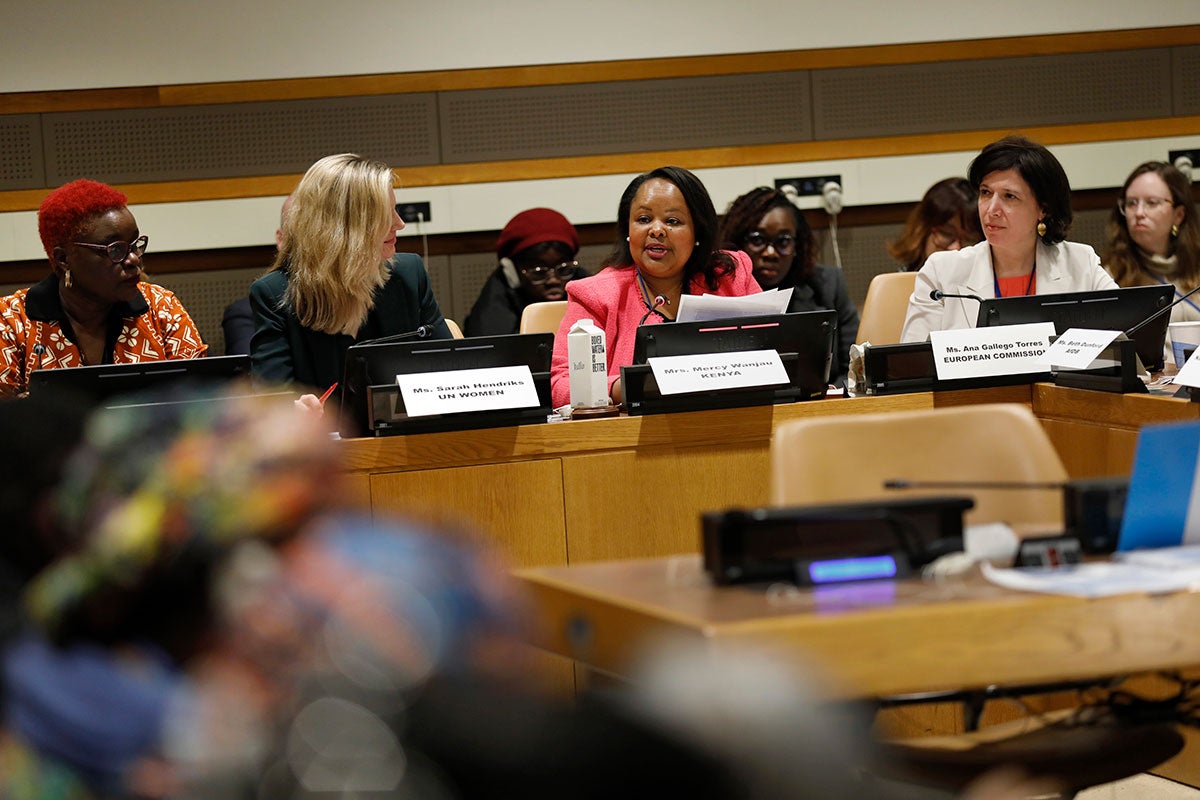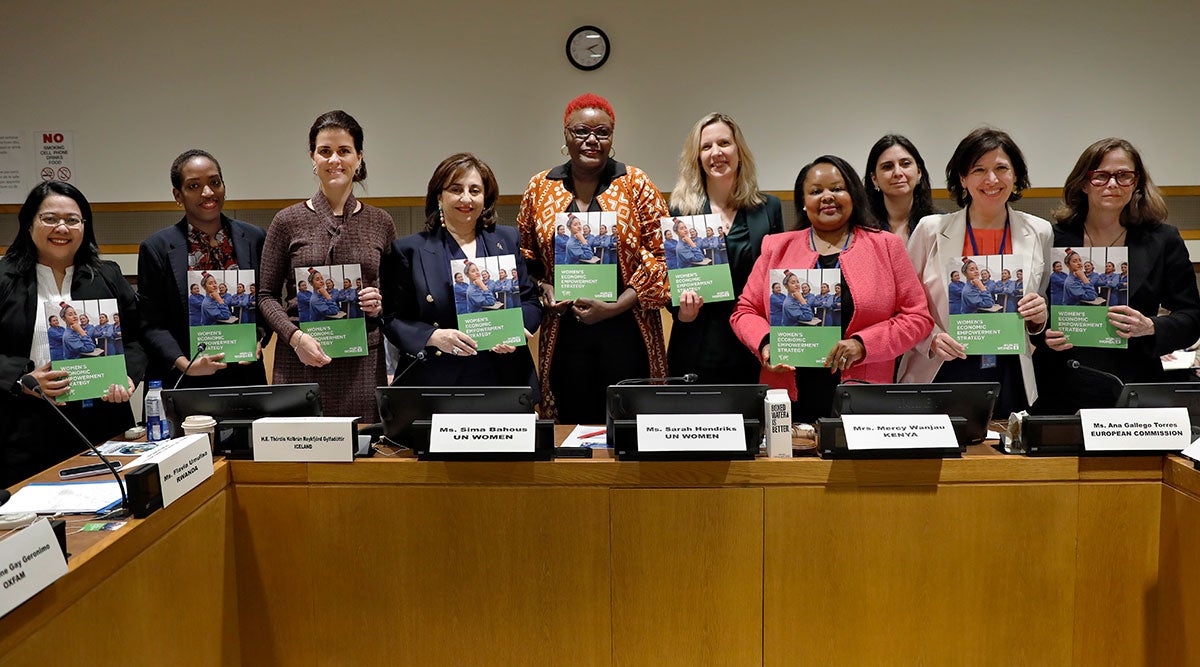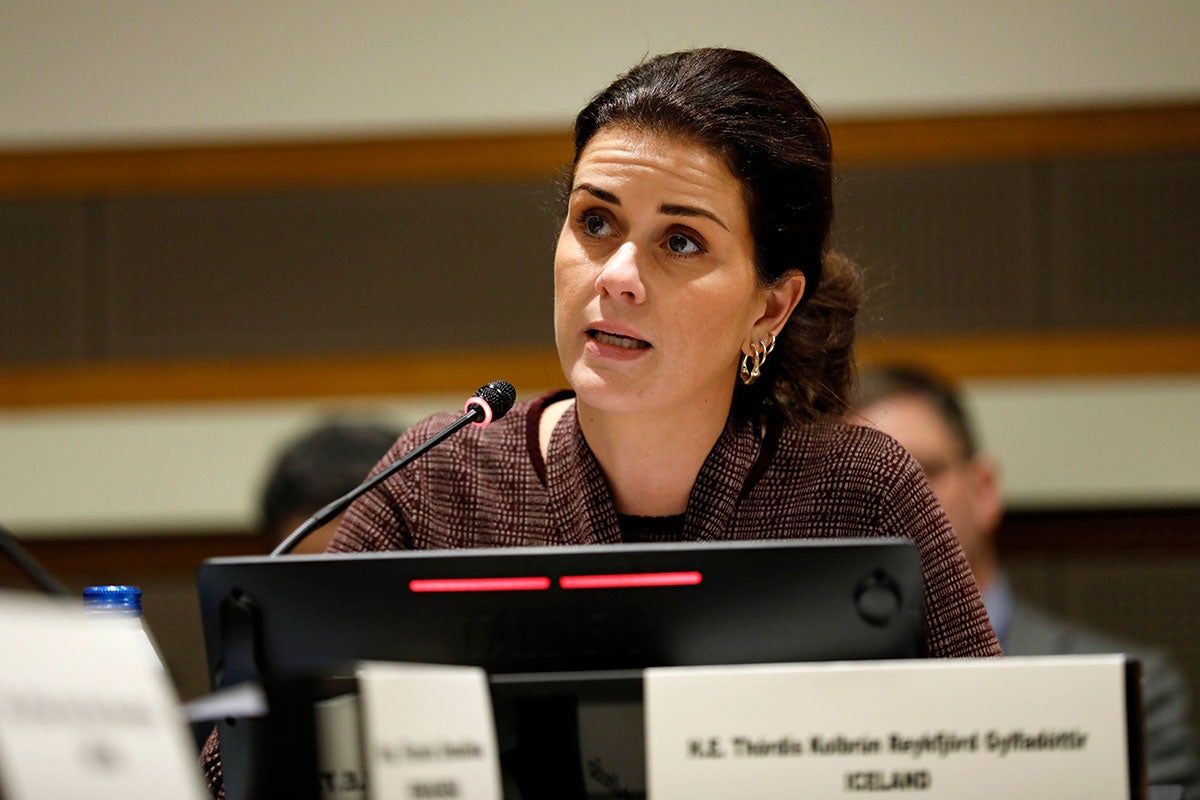Financing social protection and care systems turbocharges economies, reduces poverty
Social protection is a fundamental right and expanding social protection programmes and services – such as childcare, parental leave benefits, pensions – can reduce women’s poverty, improve their access to paid work and help them cope better with crises and shocks. Yet only 26.5 per cent of women globally have comprehensive social security coverage and more than 4 billion people remain unprotected.
The side event on financing social protection and care systems, organized by UN Women on the margins of the 68th session of the Commission on the Status of Women (CSW 68), stressed that investing in social protection measures can address today’s multifaceted challenges and advance gender equality.

“National social protection systems should be anchored in gender equality, and robust legal frameworks in line with international labour standards and human rights instruments,” said UN Women Executive Director Sima Bahous. [They should] “aim at universality, offering comprehensive guarantees to everyone throughout their life cycle.”
The Executive Director called for action in critical areas: public investments in care systems, including accessible, affordable, and quality child and long-term care services; adopting gender-responsive budgeting to strengthen social services; and reforming the international debt architecture so that excessive debt servicing does not limit vulnerable countries’ domestic spending to provide basic services to the poor.

During the event, UN Women unveiled its latest Economic Empowerment Strategy. The strategy provides a progressive blueprint for supporting women’s economic empowerment, and challenges economic structures that have perpetuated inequalities within and between nations.
Erika Ione Gay M. Geronimo, Executive Director, Oxfam Pilipinas said, “Universal social protection is an essential pillar of redistributive policies when it puts money that has been gathered through progressive taxation into the hands of those who have less and those who most need it.”
This year’s CSW convened against the backdrop of conflicts, multiple and intersecting crises and the strong backlash against women’s rights that are eroding decades of progress. The number of women and girls living in conflict-affected areas has doubled since 2017, and in fragile contexts, women are nearly 8 times more likely to live in extreme poverty. These mounting crises have exposed and widened the gap in coverage and provision of social protection programmes and public services that poor women and girls rely on. Women and girls living in poverty have become the shock absorbers of systemic failures, and their care burdens continue to rise disproportionately, as compared to men.

Speakers discussed how prioritizing investment in the care economy yields dividends not only for women and girls, but entire societies and economies. Almost 300 million jobs could be created by 2035 through investments in care services.
Thórdís Kolbrún Reykfjörd Gylfadóttir, Minister of Finance and Economic Affairs of Iceland highlighted the importance of expanding social protection to address care. “We do not have gender equality because we are a strong society; we are a strong society because we have gender equality,” she stressed.
At CSW68, UN Women and partners called for joint efforts to narrow the gender disparity in social protection. The Global Accelerator on Jobs and Social Protection for Just Transitions, a collaborative initiative led by UN Women, ILO, UNDP, UNICEF, FAO, and WFP, supports governments in establishing comprehensive social protection systems. These systems, which encompass social protection floors – basic social security guarantees that ensure access to essential health care and basic income security for those in need – are designed to provide sufficient safeguards against risks and vulnerabilities for all individuals. In turn, they also keep women from sliding backwards or deeper into the cycle of poverty.
Mercy Wanjau, Secretary to the Cabinet of the Republic of Kenya, outlined various steps that the Government is taking, including evidence-based solutions to address women's unpaid care responsibilities. These efforts extend to bridging the gender-digital divide to enhance women’s access to social protection and financial resources. In her address, she emphasized that, “accelerating progress towards ending poverty and achieving inclusive, sustainable development necessitates policy decisions that prioritize investment in economic and social policies promoting women's full economic participation, supported by gender-responsive and accountable institutions.”
The event outlined several promising practices to reduce poverty and inequality in a crisis-prone world, such as community health insurance, providing cash assistance through digital means as pre-emptive support to most at-risk communities before disaster strikes, or cash-for-care mechanisms that support the unmet and intersectional needs of women during emergencies.
Ultimately, advancing women's rights is not only a moral imperative, but also a sound economic investment that promotes poverty eradication and sustainable development for all.









